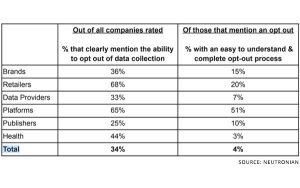In the mobile app development world, the role of traditional advertising is murky. Columnist Rob Rasko explains how marketers and app developers can get on the same page.
 Budgets continue to shift from print to digital and from desktop to mobile. One of the hallmarks of this movement is that now more than ever, anyone with an audience or the ability to create one is a publisher, holding the keys to targeted potential buyers.
Budgets continue to shift from print to digital and from desktop to mobile. One of the hallmarks of this movement is that now more than ever, anyone with an audience or the ability to create one is a publisher, holding the keys to targeted potential buyers.
Culturally, we’ve seen a shift from broad-stroke messages with a one-size-fits-all appeal to more segmented targeting and selective messages. Fittingly, the targeted audiences that mobile applications can create and deliver have become a winning place for brands to reach potential buyers.
But while many mobile application developers (the actual developers) create the audiences that marketers want to reach, not all of them are sold on the traditional route to monetization. Currently, the majority of mobile applications that are turning profits are doing so because a brand or agency has recognized the audience as valuable.
In my work around mobile, I am hearing from a lot of developers who would prefer to focus on creating a great app rather than on the details of how it makes money.
Because not all mobile app developers are sold on the traditional route to advertising, many are in the dark on where the path for that traditional route is located. They see the private marketplaces as a black box, a complex piece of equipment that is hard to break into and garner the big-name brands and advertisers that traditional publishers have access to.
‘Show them the money!’
An indie game developer with 10 million active users has a hard time expressing the value and the opportunity for advertising inside their games to big-name brands such as Coke — just as Coke does not necessarily see the opportunity for advertising dollars in an indie game. But the key is that the opportunity is there, if only we can educate the buy-and-sell side, and as Jerry Maguire might say, “Show them the money!”
My team and I earlier this year attended two conferences focused on mobile, AnDevCon Boston and Casual Connect. AnDevCon is a technical conference for professional software developers and engineers developing the Android platform. Casual Connect focuses on bringing together thought leaders in the games industry, including King, Google, Blizzard Entertainment and Facebook.
After meeting hundreds of app developers, our team identified personas around mobile app developers based on their behaviors. Understanding these personas is the first step in developing meaningful relationships between app developers and the market.
3 personas
Persona one focuses on creating applications that the market will love and less on monetizing them. They tend to be uninterested in calling up brands and agencies for budgets and are picky about who they’ll allow into their world.
Persona two has a great application and wants to monetize. However, they struggle to attract advertising dollars because brands and agencies don’t see the app as a legitimate place to spend their budget. They are frustrated and don’t know how to break into budgets.
Persona three is creating apps with tens of millions of installs and is more accustomed to working with advertisers to meet their needs. They understand that monetization is an important aspect of their development and consider this from the ideation phase.
Having identified these personas, we are currently conducting research that will look at the similarities between the types of mobile applications that are currently on the market and how their developers think about monetization. Our research will also include thoughts from marketers who will share their preferences on app development and what they think is best, an app that organically attracts a niche audience or applications that are developed with a specific audience in mind.
From what my team and I have learned so far, I predict that monetization will be at the forefront of app development conversations. As developers are educated about the potential to create revenue through their audience development, they’ll become more interested and comfortable with the steps necessary to connect with the brands and agencies that are looking to reach ever more fragmented audiences. I’ll share the research results with you in this space when it’s complete.
Some opinions expressed in this article may be those of a guest author and not necessarily Marketing Land. Staff authors are listed here.
Marketing Land – Internet Marketing News, Strategies & Tips
(56)



